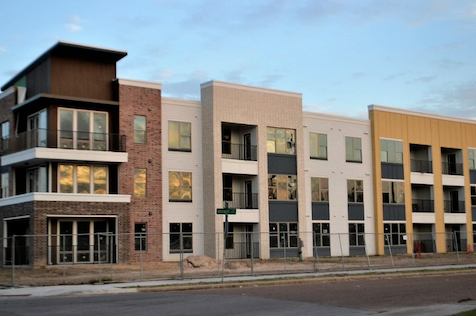
Becoming a renter is an exciting time, whether it’s your first time or fifth. Although some questions arise when the landlord hands you the lease, and you have to sign your life away. When you’ve finished looking for houses for rent in Atlanta GA and choose one that fits your lifestyle and budget, it’s time to get approved and sign that least. This is a lengthy document with all of the rules and regulations for you and your landlord’s sake, so everything is clear and no one has any miscommunication.
If you have any questions about rental leases and what they entail, or even the point of them, we’re ready to explain them to you.
Difference Between Leases and Rental Agreements
Leases and rental agreements are different but very similar to each other. A lease is a contract between you and your landlord that lays out all of the terms and conditions, rules, and guidelines you must follow during the rental period. It locks you into paying a monthly rent until your lease expires (usually a 6 or 12-month period). It’s what the landlord expects of you while you’re staying there, since after all, you don’t own the property – your landlord does.
These rental leases may seem daunting at first, but it’s a good thing to have since it protects you and the landlord from altering and changing anything.
Rental agreements differ from leases in terms of the kind of contract. Rental agreements go over a month-to-month tenancy and automatically renew every new month. Once a rental agreement is signed by the tenant, the terms and conditions can change at the end of each month. This could be a negative issue since your rent could essentially increase, or you’re all of a sudden required to pay a monthly parking fee.
Leases are Long-Term
Leases are great since they cover everything you’re expected to pay, take care of, and abide by for the entire duration of your lease. Plus, you can budget out for the entire year since your monthly rent will stay the same, even if your apartment rental has its market value increased. If you want to feel stable for a long time and know you’ll be able to afford rent, signing a lease shouldn’t be a big deal.
Landlords Want to Feel Comfortable
As stated above, leases are for the long-term, making it easier for the landlord. It lets them know that you’re serious about renting through them and you’re not going to try and back out in 6 months. Landlords want a guaranteed paycheck (your monthly rent) every month because that is how they make their money.
In the end, leases are long, daunting documents but are very important to you and your landlord. Make sure to read it thoroughly and ask any questions you may have, so it doesn’t fire back on you later.
So What Should a Rental Lease Include?
Now you know the point of a lease agreement, but what do they really include? After all, they’re very thick, long documents packed with tons of information. The first thing it will include is the names of all the tenants that will be living there. This is to ensure that everyone is responsible for paying rent. It will also usually specify that the names of those tenants will be the only ones that can live in the unit. Of course, you can have friends over, but they won’t be able to actually reside there.
Next, it will state the terms of the tenancy, meaning if it’s a rental agreement or fixed-term lease. For rental agreements, it will clearly state how much the rent is, along with any deposits and fees. Repairs and maintenance will be listed close to this as well, as what is included in repairs by the landlord and what will need to be taken care of out of your security deposit.
The allowance of having pets and any other restrictions such as loud noise past a certain hour and illegal drugs will be listed here as well. Privacy rights that are violated like tenant claims of unauthorized entry or how someone should enter into the rental property will be listed here, too.




 POSTED BY
POSTED BY 

